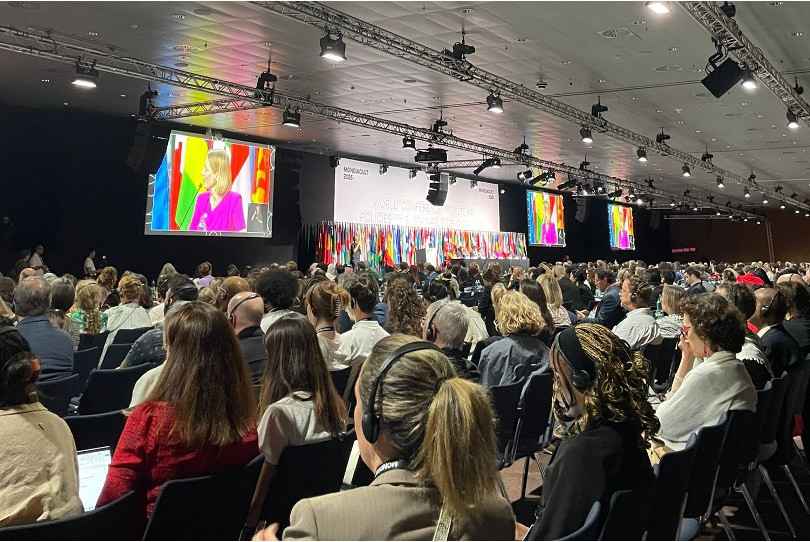
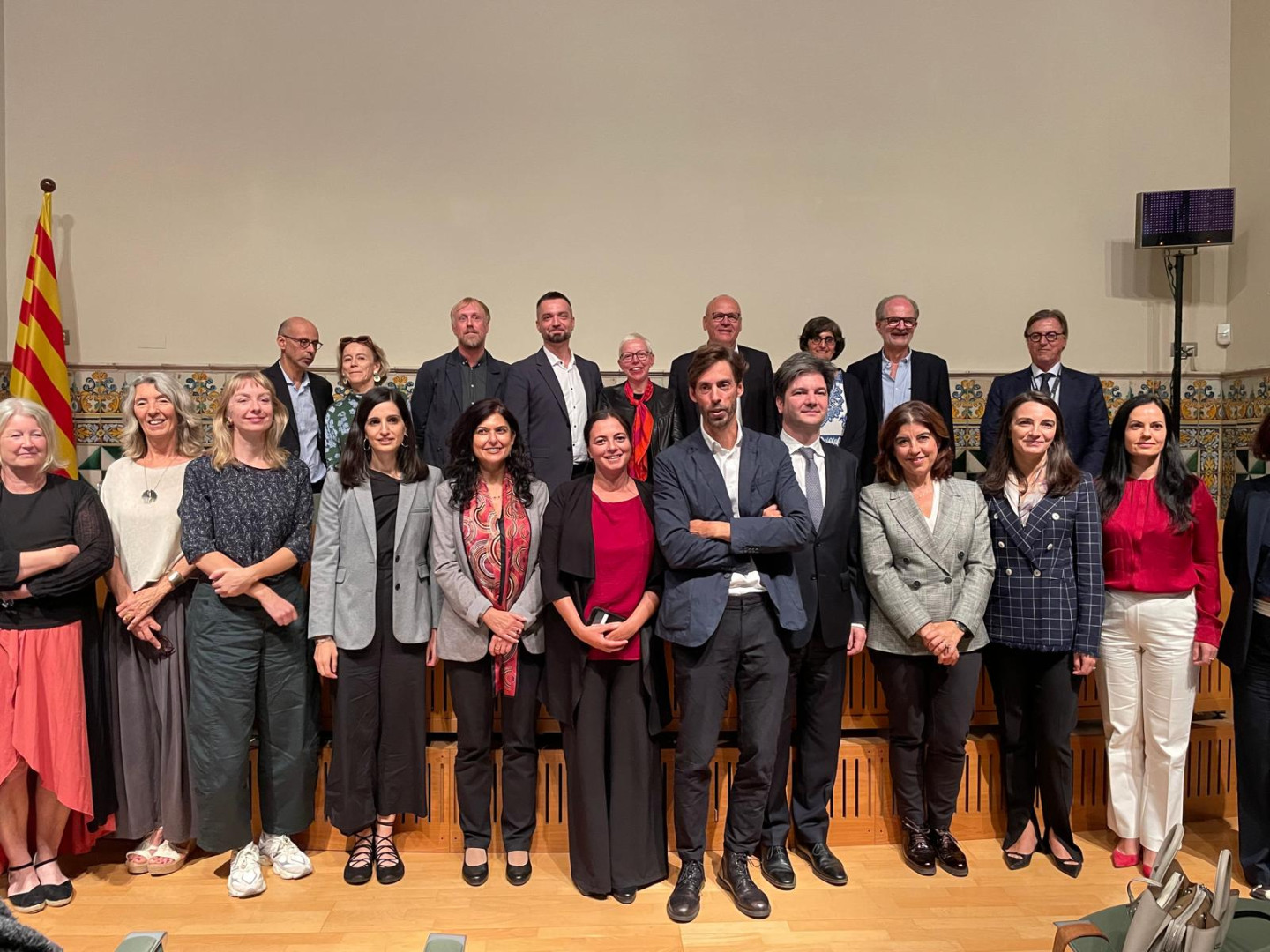
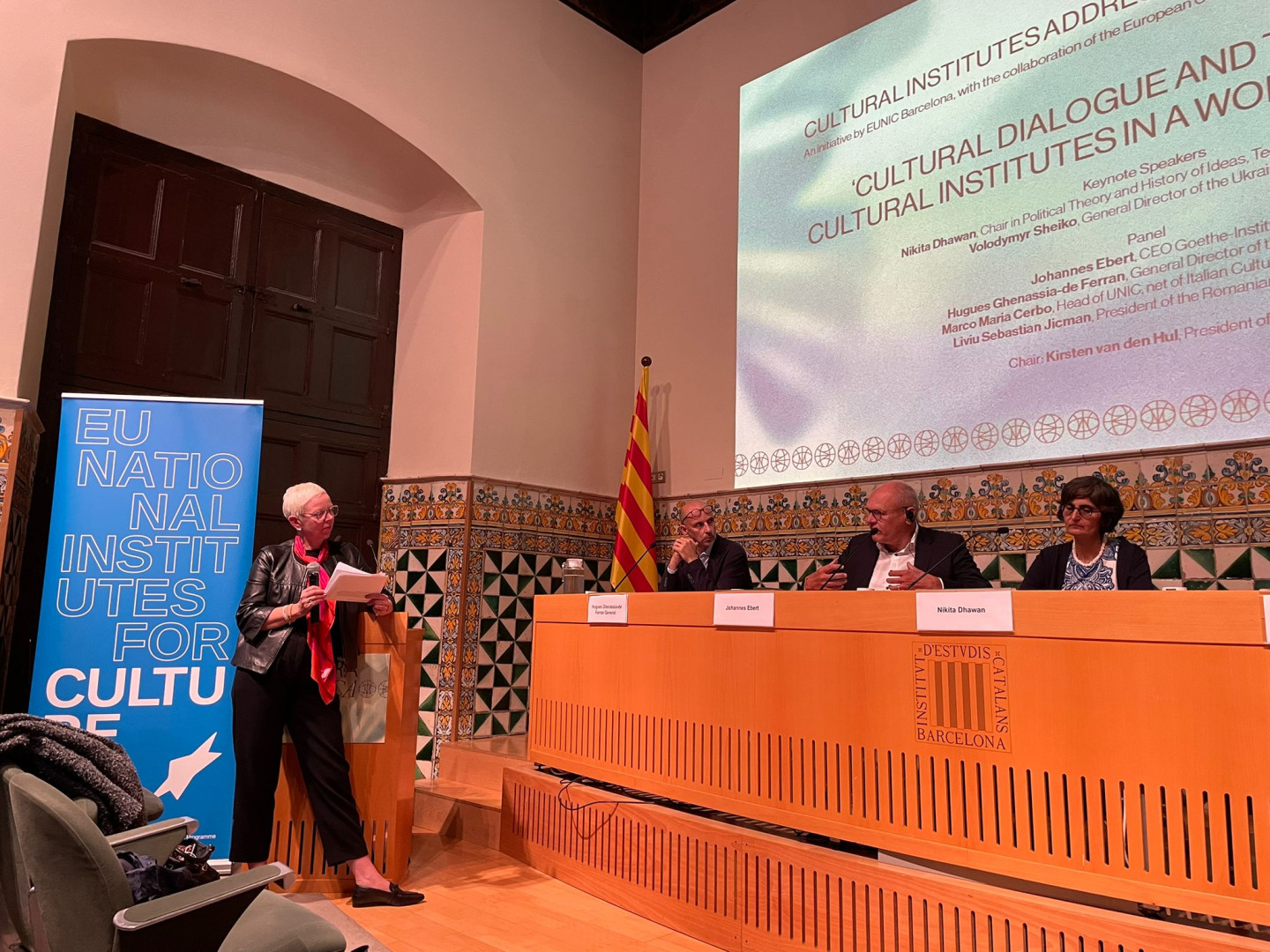
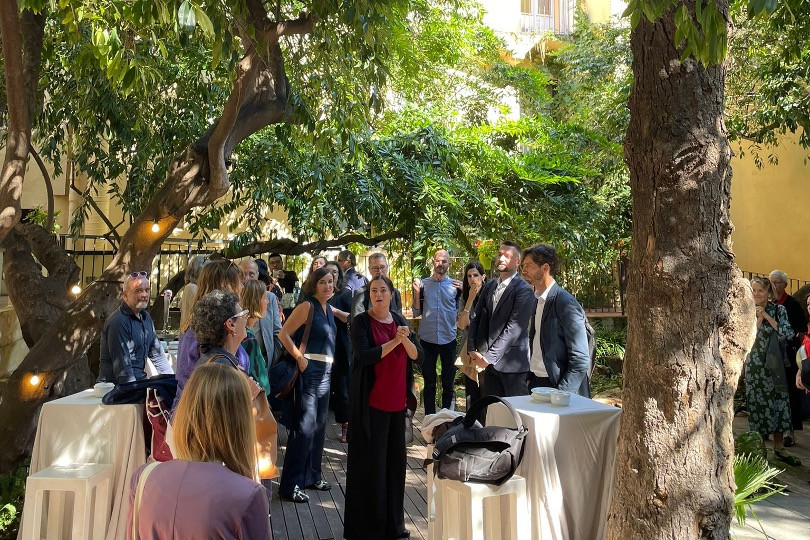
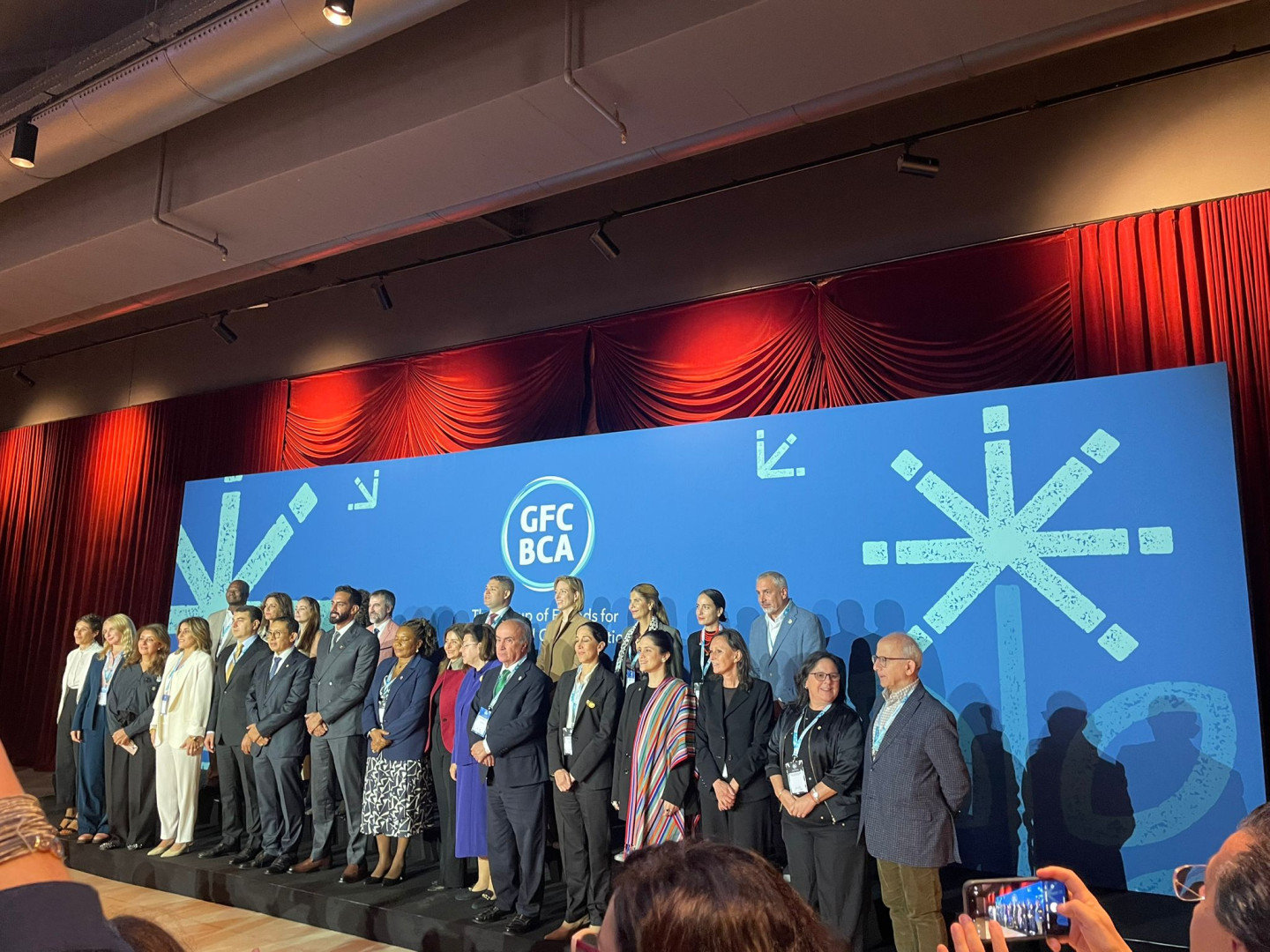
EUNIC members engaged at MONDIACULT 2025 in Barcelona
MONDIACULT – UNESCO World Conference on Cultural Policies and Sustainable Development – took place in Barcelona this week, gathering actors from across the arts, culture, and human rights sectors.





The conference brought together the 194 Member States of UNESCO, including over 100 ministers, alongside countless NGOs, a youth forum, and a civil society forum.
As globally active cultural relations organisations, EUNIC members were present in Barcelona and contributed valuable people-to-people perspectives and practical experiences to this global forum.
Focus areas and key takeaways
UNESCO Director General Audrey Azoulay described MONDIACULT 2025 as “multilateralism augmented”.
Spanish Prime Minister Pedro Sánchez, opening the conference, underlined that “the future does not belong to one nation or one time in history, but is the thread which binds us together”, adding that “culture is a commitment to freedom and to peace.”
In hosting MONDIACULT in Barcelona, the Spanish government added Culture for Peace and Artificial Intelligence and Culture as focus areas, building on the themes established at MONDIACULT 2022 in Mexico.
In closing the conference, Azoulay and conference president Ernest Urtasun, Spain’s Minister of Culture, declared a clear ambition: to make culture a stand-alone Sustainable Development Goal (SDG) in the post-2030 frameworks.
Read the MONDIACULT 2025 Outcome Document here.
EUNIC members engaged in and around MONDIACULT
Many EUNIC members participated in MONDIACULT through both official accredited events and side events, in the run-up to and during the conference.
Several members organised sessions in joint collaborations, ranging from British Council, Goethe Institut, and Ukrainian Institute who co-hosted a dialogue on how cultural approaches can support resilience in times of conflict, to ifa – Institut für Auslandsbeziehungen and British Council who convened a conference on 'Conflicted Culture: Resilience and Cooperation to Thrive in Changing World Orders'.
Across these events, EUNIC members brought forward diverse perspectives, voices of artists and practical examples from cultural practitioners worldwide.
Bridging Inter-governmental and civil society discussions
EUNIC colleagues engaged both in the inter-governmental sessions of MONDIACULT and in the civil society sessions of the Àgora Cívica - a programme of debates and networking that brought together local and international perspectives on the role of culture in contemporary societies.
The Àgora Cívica emphasised the need for action and implementation, not just debate. The MONDIACULT Youth Forum echoed this, calling for youth and civil society voices to be included directly in inter-governmental discussions rather than in parallel spaces.
As part of Àgora Cívica, the EUNIC Barcelona cluster hosted a side event, “Cultural Institutes Addressing Global Challenges”, in partnership with EUNIC Global, the European Commission in Barcelona and Institut Ramon Llull.
The event explored cultural dialogue in times of conflict and transnational justice, alongside a dedicated session on AI and language learning.
The panel on cultural institutes in a world in conflict was moderated by EUNIC President Kirsten van den Hul, with contributions from Prof. Nikita Dhawan, Johannes Ebert, Secretary General of Goethe Institut, Hugues Ghenassia-de Ferran, General Director of Institut Français, Liviu Jicman, President of Romanian Cultural Institute and Volodymyr Sheiko, Director of Ukrainian Institute.
Culture and climate: The Barcelona Declaration
EUNIC was welcomed as a new knowledge partner to the Group of Friends of Culture-Based Climate Action.
At the ministerial meeting ahead of MONDIACULT, Brazilian Minister of Culture Margareth Menezes invited EUNIC to join the issuing of the Barcelona Declaration.
UNESCO Assistant Director General for Culture Ernesto Ottone underlined the importance of the broad coalition of actors in the Group of Friends, while UNESCO Director General Audrey Azoulay highlighted the work of the Group of Friends as a milestone in embedding culture within climate action.
Final reflections
MONDIACULT 2025 offered a valuable opportunity to be enriched by broad global perspectives. It allowed EUNIC to strengthen connections with delegations from around the world where EUNIC’s global network of clusters is active.
It was also an opportunity to reaffirm EUNIC’s role as a key player in 'Team Europe'. Through exchanges alongside EU Commissioner Glenn Micallef and European Parliament CULT Committee Chair Nela Riehl, EUNIC reaffirmed its position as a central actor in advancing cultural relations as part of Europe’s international engagement.
